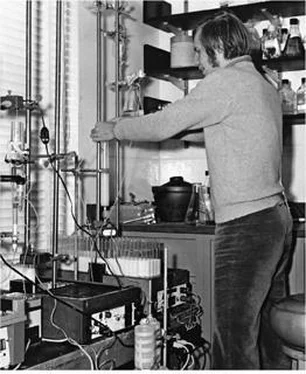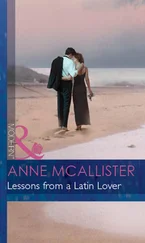James Watson - AVOID BORING PEOPLE - Lessons from a Life in Science
Здесь есть возможность читать онлайн «James Watson - AVOID BORING PEOPLE - Lessons from a Life in Science» весь текст электронной книги совершенно бесплатно (целиком полную версию без сокращений). В некоторых случаях можно слушать аудио, скачать через торрент в формате fb2 и присутствует краткое содержание. Жанр: Биографии и Мемуары. Описание произведения, (предисловие) а так же отзывы посетителей доступны на портале библиотеки ЛибКат.
- Название:AVOID BORING PEOPLE: Lessons from a Life in Science
- Автор:
- Жанр:
- Год:неизвестен
- ISBN:нет данных
- Рейтинг книги:5 / 5. Голосов: 1
-
Избранное:Добавить в избранное
- Отзывы:
-
Ваша оценка:
- 100
- 1
- 2
- 3
- 4
- 5
AVOID BORING PEOPLE: Lessons from a Life in Science: краткое содержание, описание и аннотация
Предлагаем к чтению аннотацию, описание, краткое содержание или предисловие (зависит от того, что написал сам автор книги «AVOID BORING PEOPLE: Lessons from a Life in Science»). Если вы не нашли необходимую информацию о книге — напишите в комментариях, мы постараемся отыскать её.
AVOID BORING PEOPLE: Lessons from a Life in Science — читать онлайн бесплатно полную книгу (весь текст) целиком
Ниже представлен текст книги, разбитый по страницам. Система сохранения места последней прочитанной страницы, позволяет с удобством читать онлайн бесплатно книгу «AVOID BORING PEOPLE: Lessons from a Life in Science», без необходимости каждый раз заново искать на чём Вы остановились. Поставьте закладку, и сможете в любой момент перейти на страницу, на которой закончили чтение.
Интервал:
Закладка:
IWENT to my first college classes at the University of Chicago in the summer of 1943. By starting in the summer and continuing in residence during subsequent summers, I had a good chance of obtaining my degree before I could be called into military service when I turned eighteen. Initially I had no choice about the courses I took—one-year surveys in the physical sciences, the humanities, and the social sciences were the intellectual blue plate special for all freshmen. There were even more prosaic requirements in math and English (reading, writing, and criticism). The survey requisites were a reaction against the free elective curricula that had come to dominate American colleges in the early twentieth century, particularly following the popularization of this system at Harvard by its then president, Charles Eliot.
At the time, the College of the University of Chicago saw as its clear purpose to perpetuate the common ideas and ideals that held together Western civilization. To do so President Robert Hutchins required the college to uphold before students “the habitual vision of greatness.” When I matriculated, Hutchins was forty-four. He had become president fourteen years before in 1929 at the age of thirty. He had earlier served as secretary of the Yale Corporation at the age of twenty-four, under James Rowland Angeli, who had come from the University of Chicago to be Yale's president. Upon obtaining his law degree, Hutchins began teaching law and through his personal magnetism and confident intellect quickly dominated the Yale law faculty, soon becoming its youngest dean ever. He remained only a year in this prestigious
position before being chosen as the sixth president of the University of Chicago.An impulse to reform the chaotic state of American undergraduate education actually predated Hutchins's arrival in the form of a faculty report recommending that all students take a common set of introductory survey courses during their freshman and sophomore years. Afterward they would take elective courses in their fields of concentration. When he launched this program in 1931, Hutchins grafted onto it two much more radical ideas. The first was the replacement of conventional textbooks with readings from the great books of Western civilization starting with Plato and going through Darwin, Marx, and Freud. Equally revolutionary was Hutchins's plan to accept students after only two years of high school. This idea was implemented experimentally beginning in 1937, largely with students in the University High School and taught mainly in the high school's classrooms. By 1942, however, a close vote of the war-depleted faculty realized Hutchins's bold alternative to the conventional bachelor's degree.
It was into this essentially untried educational environment that I entered each day via a roughly thirty-minute streetcar commute for a three-cent student fare. My best course was Social Science I (American Political Institutions), then taught very ably by Robert Keohane. There was no deep metaphysics on which to get hung up, and I went with pleasure to the main reading room of Harper Library to find primary historical documents such as the Federalist Papers or the Dred Scott decision. The book that influenced me most, however, was Main Currents in American Thought by Vernon Parrington. It was the first to push me above the canned versions of American history, emphasizing names, dates, maps, and tables to reckon with economic and religious determinism. Much more clearly than before, I appreciated the ideological differences between the Democrats and Republicans and their respective alternatives for coping with the Great Depression, which now only a major war, it seemed, could bring to an end.
Inserting the great books into the science surveys was from the start a controversial idea totally opposed by the science faculty, who considered teaching the history before the facts of science a lunacy of mad medievalists. My introduction to physical science survey, taught by the
biologist Tom Hall, was a hodgepodge of these two approaches. Much of the time I couldn't tell what was required of me, and my self-esteem fell when I received a B on my exam at the end of the summer term. Fortunately, only the results of the comprehensive exam taken at the end of the full year's work would appear on my official record. But I got a B on that too.The evaluation system at the college was then unique. Hutchins had nothing but contempt for the custom of courses being continually punctuated by exams requiring modest recall of textbook readings or lecture notes. At Chicago a special board of examiners, not the individual course instructors, was responsible for the exams. No advantage could come of buttering up the instructor or religious note taking in lectures. Your attention could focus on intellectual arguments while you were in class, not afterward in preparation for an exam. Unfortunately, some of the exams felt more like rarefied IQ tests than honest attempts at evaluating knowledge of the syllabus.
As a commuting student, I entered only marginally into the social life of Hutchins's college, about half of whose students lived in dorm rooms set aside for them. Ida Noyes Hall, originally the social and athletic center for women, became the meeting point for my younger cohort, many of whom, despite relative youth, relaxed by playing endless hands of bridge there. Our athletics also centered on Noyes Hall, where the gymnasium was used for intramural games as well as academic competitions with teams from the private high schools, such as Chicago Latin, the University High School's traditional competitors. I routinely went to all its home court games but more obsessively followed the college team, which in 1943-44 played its last season in the Big Ten. Chicago's compulsory survey courses were ultimately unmanageable for Big Ten-quality athletes, and allowances were not going to be made for students recruited solely for their athletic ability. Our final year was a humiliation until the Chicago Five were vastly strengthened by the arrival on campus of several men from the navy for war-related learning. I became transfixed during our last game of the season, against the perennial powerhouse Ohio State. Chicago kept it tied until almost the end, allowing a tiny crowd of fans to head off to bed knowing they had almost witnessed a miracle.
On the west side of Stagg Field were the original football stands, underneath which handball and squash courts had been placed. I naturally gravitated to handball, in which sheer strength counted for little. Several courts north of where I usually played, there was a locked door with a No Trespassing sign, from which one inferred that war research was being conducted on the other side. I wondered whether it was an extension of the top-secret physics project that had recently brought to Chicago my physicist uncle, William Weldon Watson, who had come with his family from New Haven, where he was a professor at Yale. Though Bill was very discreet, I got the impression that they were trying to develop a superweapon ahead of the Germans.A real plus of the college's evaluation system was that you could take your comprehensive exams as soon as you felt prepared. No requirements existed for attending classes or writing term papers. And the tuition was the same even if you registered for more than the normal course load. Because of the war, all the second years of physical sciences courses were crammed into the spring 1944 quarter. Once again I eked out a B on the final exam. I used the following summer quarter to cram down the one-year-long Biological Science Survey, which, happily, was not weighted down by the great-books historical approach. With my interest in birds drawing me toward a career in biology, I was disappointed when I got yet another B on the comprehensive exam that August.
Читать дальшеИнтервал:
Закладка:
Похожие книги на «AVOID BORING PEOPLE: Lessons from a Life in Science»
Представляем Вашему вниманию похожие книги на «AVOID BORING PEOPLE: Lessons from a Life in Science» списком для выбора. Мы отобрали схожую по названию и смыслу литературу в надежде предоставить читателям больше вариантов отыскать новые, интересные, ещё непрочитанные произведения.
Обсуждение, отзывы о книге «AVOID BORING PEOPLE: Lessons from a Life in Science» и просто собственные мнения читателей. Оставьте ваши комментарии, напишите, что Вы думаете о произведении, его смысле или главных героях. Укажите что конкретно понравилось, а что нет, и почему Вы так считаете.












